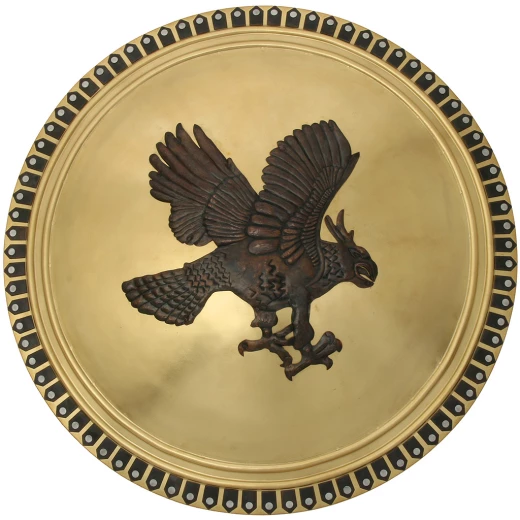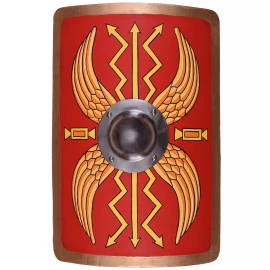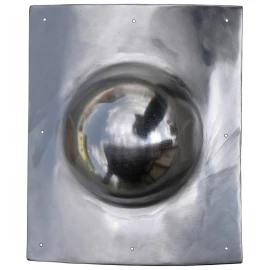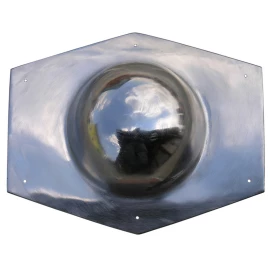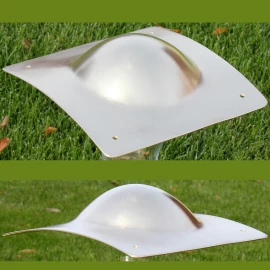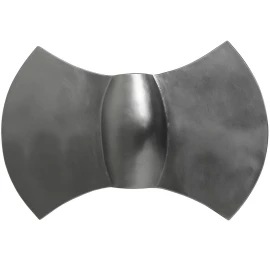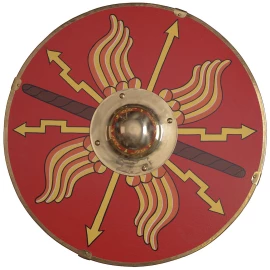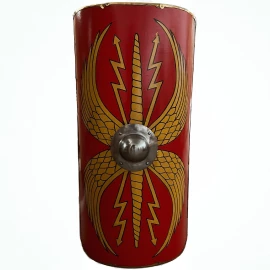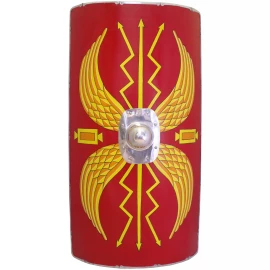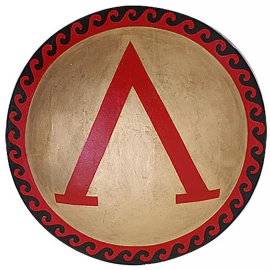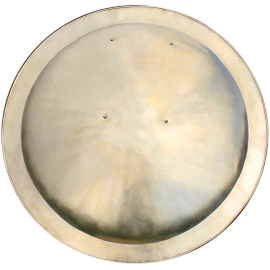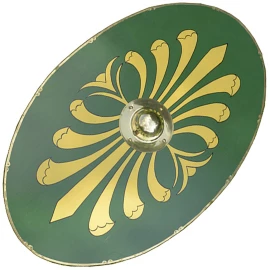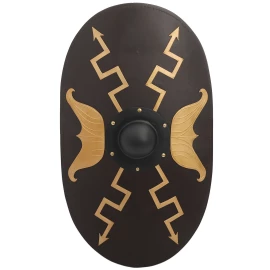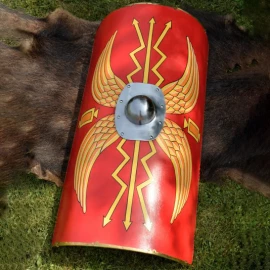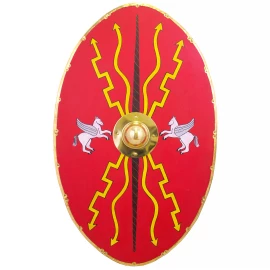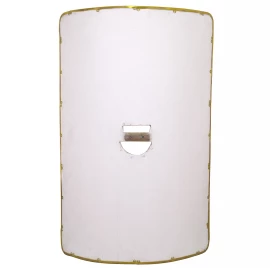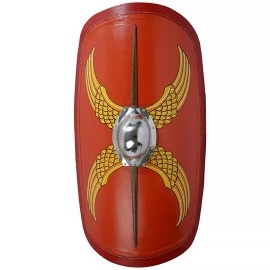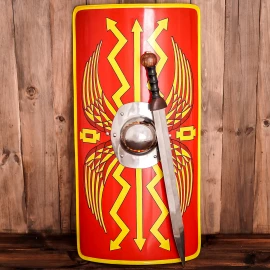Mirror shield Perseus
1xThis Mirror shield Perseus is inspired by the interpretation from the famous movie Clash of the Titans from the year 1981. It is a fully functional version for practical use in LAPR, theatre or film production. The inner side of the domed round shield is covered with polished stainless steel plate, which serves as a mirror. More information...
Notify me when the item is in stock.
We will inform you as soon as we stock up.
Mirror shield Perseus
- Overall diameter approx. 66cm (26 ")
- Height of dome approx. 8.9cm (3.5 ")
- The shield body is made from 1.5mm thick brass sheet
- Weight approx. 7,5 kg
- A hand-hammered eagle-application from copper is riveted on the outer side of the shield
- The double-fluted edge of the shield is decorated with a series of small riveted copper plates
- The handles are decorated with brass discs and wrapped in hemp rope
- The Mirror shield Perseus is equipped with a leather strap for wearing over the shoulder
From the greek Mythology
When Perseus was grown, Polydectes came to fall in love with the beautiful Danaë. Perseus believed Polydectes was less than honourable, and protected his mother from him; then Polydectes plotted to send Perseus away in disgrace. He held a large banquet where each guest was expected to bring a gift. Polydectes requested that the guests bring horses, under the pretense that he was collecting contributions for the hand of Hippodamia, "tamer of horses". Perseus had no horse to give, so he asked Polydectes to name the gift; he would not refuse it. Polydectes held Perseus to his rash promise and demanded the head of the only mortal Gorgon, Medusa, whose eyes turned people to stone.
Athena instructed Perseus to find the Hesperides, who were entrusted with weapons needed to defeat the Gorgon. From the Hesperides he received a knapsack (kibisis) to safely contain Medusa's head. Zeus gave him an adamantine sword (a Harpe) and Hades' helm of darkness to hide. Hermes lent Perseus winged sandals to fly, while Athena gave him a polished mirror shield. Perseus then proceeded to the Gorgons' cave.
In the cave he came upon the sleeping Medusa. By viewing Medusa's reflection in his polished mirror shield, he safely approached and cut off her head. From her neck sprang Pegasus ("he who sprang") and Chrysaor ("sword of gold"), the result of Poseidon and Medusa's meeting. The other two Gorgons pursued Perseus, but, wearing his helm of darkness, he escaped.
We are here for you


